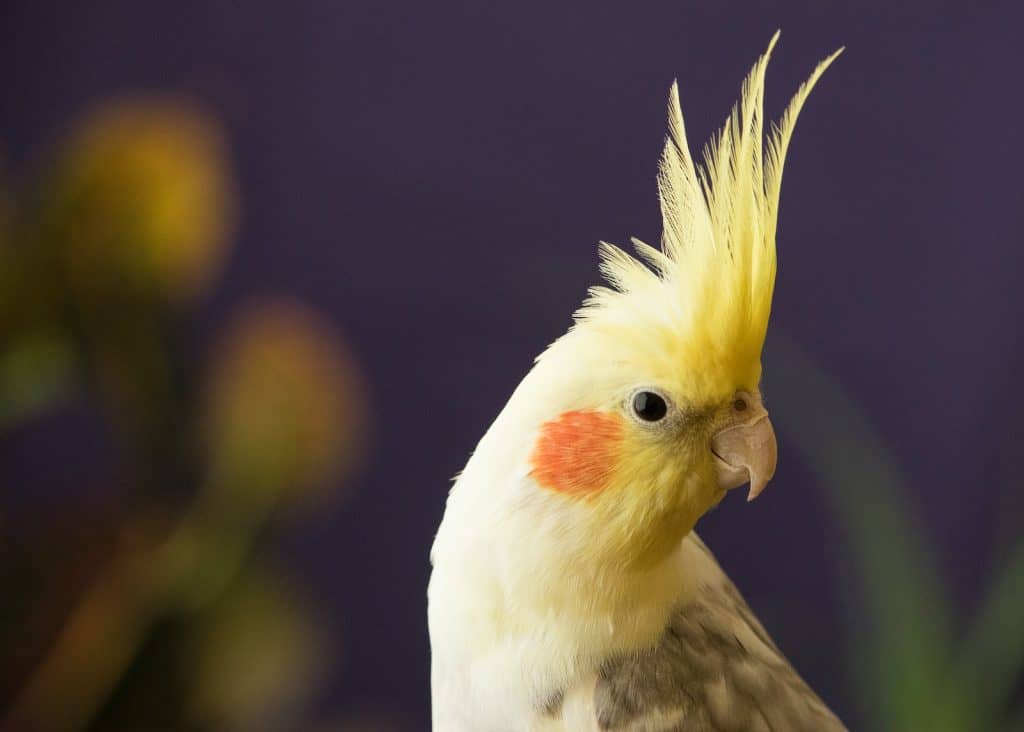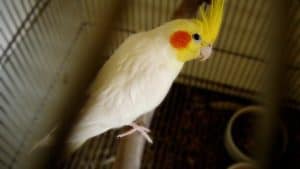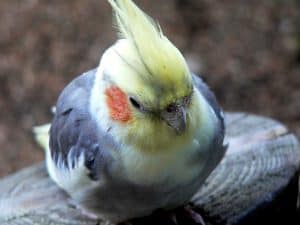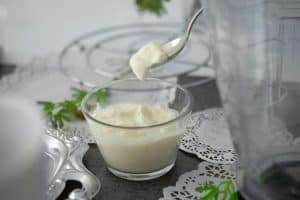Cockatiels are popular pets because they are extremely responsive and emotive. Because cockatiels are so talkative and expressive, it can take owners time to figure out which noises and body movements have distinct meanings. In the same way, over time, each cockatiel and its owner will develop their own unique language system. As a result, when your cockatiel bobs its head, it may communicate something completely different than when your friend’s cockatiel bobs its head. So, why does my cockatiel bob his head?
Why Does My Cockatiel Bob His Head?
Cockatiels bob their heads for different reasons depending on what stage of life they are in. A baby cockatiel that is head-bobbing is probably looking to be fed. On the other hand, an adult cockatiel that does this behavior is more likely wanting to mate, greet another birds or its human carer, or wants attention/food.
Why Does My Cockatiel Bob His Head? Cockatiel Body Language
Cockatiels may make a variety of gestures to communicate their wants and needs, as well as how they feel. Some movements, such as pupil “pinning” (when the pupils dilate and constrict rapidly), are rather subtle.
Other activities, such as cockatiel head bobbing, are simpler to detect. Cockatiels flattening or fluffing their feathers or bobbing their heads rapidly up and down, on the other hand, may all be attempting to communicate with you. Your cockatiel may be trying to communicate with you, particularly if it is the “only bird” in your household. Cockatiels use head nodding as a way of communicating among themselves if they live together.
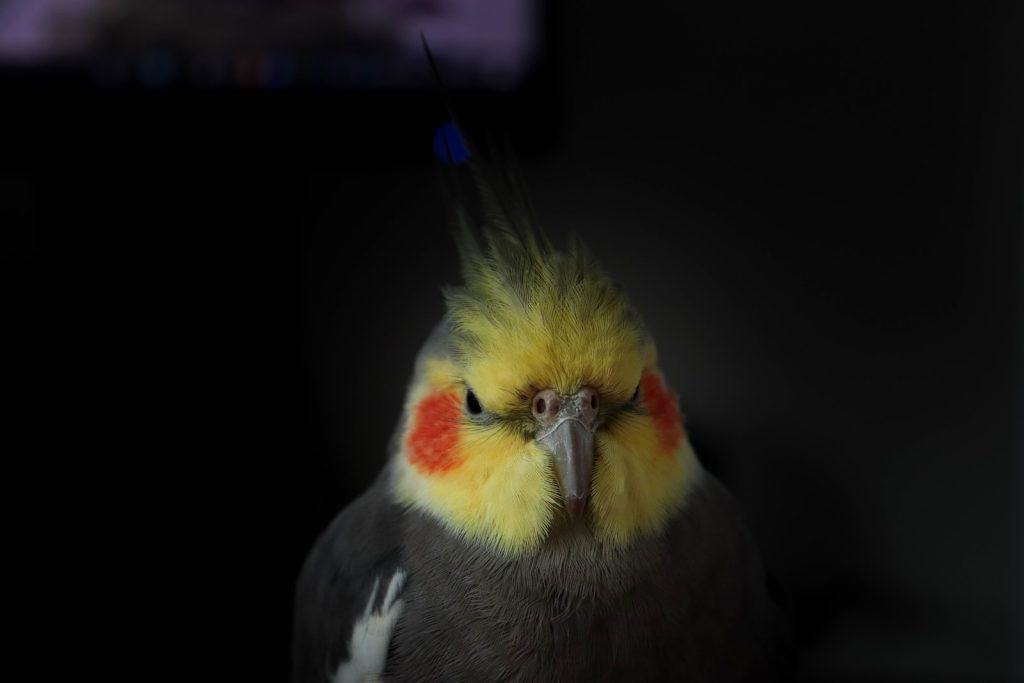
Why Does My Cockatiel Bob His Head, The Same As Head Shaking?
Cockatiel Cottage is a place that unsettled owners of cockatiels can go to in order to better understand their bird. Head bobbing behavior and shaking are two examples of weird behaviors that these birds do, for which there currently isn’t a 100% accurate answer. Although many experts have theories about why your pet might be doing this strange action, we cannot know for certain until the cockatiel explains it himself/herself.
What Does It Mean When a Cockatiel Bobs Its Head?
Cockatiels might head-bob for different reasons, such as when they’re begging. Head-bobbing is a movement that breeders often see in very young cockatiels.
Baby birds use head bobbing as a way to communicate hunger to their parents. This is often done in combination with an arched back and wings that are both lifted and fluttering. For cockatiels specifically, the parent birds will feed them by regurgitating food from their crop (a storage pouch similar to a stomach) into the baby bird’s crop.
After a baby cockatiel has been weaned and is eating adult food on its own, it may continue to head bobbing begging in the hopes of obtaining a handout from its parents.
- Parrot Essential Toy: The bird parrot toy provides essential physical activity to keep your feather friends stable and happy, and improve your health. There are several multi-colored blocks in this single toy to entice your bird. These blocks are arranged in multiple layers to climb and explore.Birds also love to untie cotton rope knots, which satiates their natural urge to chew.
- Safe To Chew: Our wood parrot toys are made of pure natual wood & cotton rope, all of them are dyed by edible pigments, and completed with pure handmade which are more bite resistand and durable.
- Perfect Size: The size is 13.78" X 5.12". perfect size for small and medium birds. It is suggested for african greys, budgies, parakeets, cockatiels, conures, lovebirds and other similar sized birds. Provide your bird an ideal elevated place to chew and climb.
- Beak Trimmed: Parrot's beak keeps growing to keep sharp. if her beak is long can affect the ability of the parrot to eat and damage her health. Our parrot chew toys contain colored wooden blocks and other accessories in various shapes to attract your parrot to chew, help your feather friends to preen and condition their beak.
- Best Gifts For Your Parrot: It is designed in bright color, which can easily attract parrots attention in short time and they will play with these toys for long time daily, keep your parrots busy, less destructive and have more fun hours.
In cockatiels, head bobbing is frequently associated with regurgitation. In healthy adult cockatiels, this is more likely to happen than in healthy baby cockatiels, although it can happen at any age. Occasionally, a cockatiel may consume too much or eat the incorrect food or a large piece of food that contains extra air while feeding, resulting in an illness known as a sour crop.
Cockatiels frequently bob their heads in order to say hello! Cockatiels that are pleased or thrilled to see a flock member or their human owner may bob their heads. This motion is frequently accompanied by a unique chirp or a repetitive series of noises.
When finding a mate or greeting a mate, wild cockatiels or wild birds frequently bob their heads. For female cockatiel and male cockatiels, head bobbing is a well-known display made by wild cockatiels when looking for a partner or greeting one. The act of head bobbying is often completed by the male cockatiel in this circumstance.
Cockatiels that are not paired with another pet birds may develop a close friendship with humans or even inanimate objects such as mirrors and other reflecting things. These birds may raise their heads at their people or at mirrors, especially during the summer when long daylight hours indicate it’s time to nest.
Why Does My Cockatiel Bob His Head When He Is Happy?
Commonly, as bird owners. you’ll see cockatiels bobbing their heads in sync to music or other birds’ noises. Snowball, a Cockatoo, is the most notable tunes-loving head-bobbing bird. The connection between cockatiels and cockatoos is notably close.
Many bird species seem to enjoy music, responding to different songs and melodies with moves that look similar to human dancing, like cockatiel bobbing, open wings, and heightened crest. They will often sing along as well.
Your cockatiel will dance and bob their head if you play music, but there are a few other things that can cause this behavior as well. If your bird starts to light up and gyrate his head around and sing or shriek when you put on music, the most probable explanation is that he is “bobbing to the beat.”
Why Does My Cockatiel Bob His Head: Health Reasons
Why does my cockatiel bob his head? We earlier mentioned that cockatiels might bob their heads when they feel unsafe or distressed. Therefore, you should always tell your avian veterinarian about this behavior to ensure your bird’s well-being.
